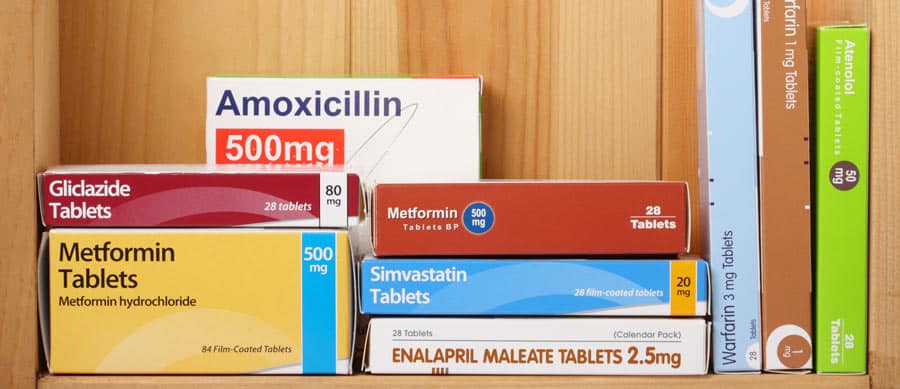Prescription drug abuse is much more common than you might think. In 2016 alone, 3.3 million people ages 12 and over abused prescription painkillers (narcotics) and 2.9 million people ages 12 and over abused prescription psychotherapeutics excluding pain relievers. But narcotic abuse is not the only common form of prescription drug misuse. Tranquilizers like Valium and Xanax are also frequently abused, with an estimated 2 million people ages 12 and over misusing them.1
Table of contents
Although very common, prescription drug abuse is not always clearly recognizable. You may not even realize that you have a problem yourself! If you are taking any medication prescribed to you by a doctor, you should always be aware of the risks as well as the warning signs of dependence and addiction.
Most Commonly Abused Prescription Drugs
Although many different types of prescription drugs have a high potential for abuse, these are the most commonly abused medications, according to the National Institute on Drug Abuse.2
- Barbiturates (Amytal, Nembutal, etc.)
- Benzodiazepines (Valium, Xanax, Klonopin, etc.)
- Sleep medications (Ambien, Lunesta, Sonata)
- Codeine
- Morphine
- Methadone
- Fentanyl
- Oxycodone
- Hydrocodone
- Oxymorphone
- Meperidine
- Propoxyphene
- Amphetamines (Adderall)
- Methylphenidate (Ritalin)
These prescription drugs are generally safe when used as prescribed by a doctor, but if abused, they can lead to dependence and addiction. The abuse may be intentional or unintentional, but people typically do it for a number of reasons, including:
- To relieve pain or tension
- To get high
- To prevent withdrawal
- To fit in with peers
- To improve performance at school or work
Warning Signs of Prescription Drug Abuse and Addiction
If you think that a loved one may be abusing prescription drugs or you’re struggling with misuse of your own medication, here are some common warning signs that may signal a problem.3
- Getting multiple prescriptions from different doctors (also known as “doctor shopping”)
- “Losing” prescriptions and going back to the doctor for more
- Forging prescriptions
- Stealing prescription drugs from doctor’s offices, pharmacies, or parents’/friends’ medicine cabinets
- Taking higher or more frequent doses than your doctor prescribed
- Appearing to be unusually energetic or lethargic
- Poor coordination
- Experiencing a sense of confusion
- Having frequent memory problems
- Experiencing extreme mood swings
- Being excessively agitated, anxious, or paranoid
Prescription Drug Addiction and Detox
If you or a loved one is abusing prescription drugs, it may be dangerous to suddenly just stop taking them and if you do, you may begin to experience very uncomfortable side effects of withdrawal.
Instead, the safest and most effective way to stop abusing prescription drugs is to enroll in a medically-assisted detox program. With medically-assisted drug detox, you’ll work with a team of addiction treatment experts to treat your physical and emotional responses to detox while they use medication to gradually taper you down into a comfortable state of sobriety.
Drug withdrawal can be scary and uncomfortable, but medically-assisted drug detox at Briarwood Detox Center can provide an experience that comfortable, safe, and effective.
Call (512) 363-5914 to learn more about our medically-assisted drug and alcohol detox programs at Briarwood today.
References:


